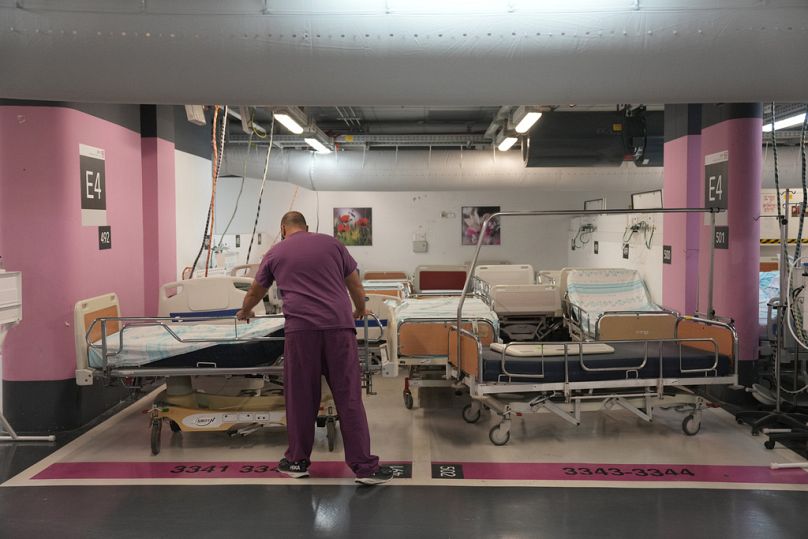Despite a climate of fear across the Middle East, everyday residents have little to do but get on with their lives.
In Beirut, shops are open and traffic is as snarled as ever. In Tel Aviv, cafes hum with patrons and umbrellas sprout across crowded beaches.
 ADVERTISEMENT
ADVERTISEMENT
 ADVERTISEMENT
ADVERTISEMENT
Such scenes may seem surreal in a region teetering on the edge of all-out war — and beneath the surface there is plenty of fear and anxiety. But after 10 months of near-daily border skirmishes, strikes further afield and escalating threats, a sense of fatalism seems to have set in.
The killings last week of two militant leaders in Beirut and Tehran — both attributed to Israel — have drawn vows of revenge from Iran and Lebanon's Hezbollah.
Everyone expects that an all-out war would be far more devastating than any previous conflict between Israel and Hezbollah, including the 2006 war.
But in Nahariya, a coastal town just 6 kilometres south of Lebanon, Israelis lounged at the beach and surfers caught waves in the shadow of the hills rolling along the border.
Nahariya resident Shauli Jan said the area was “tense” but that most people were still going about their daily lives despite frequent air raid sirens. He decided to come to the beach as usual.
“We just want it to be calm," he said. “We prefer to have a political arrangement and not war.”
Israel's military had not as of Monday released any special guidelines or warnings for civilians, meaning beaches were full, summer camps were ongoing and people still headed to work as they have throughout most of the war in Gaza. No one seemed to be stocking up on supplies, and grocery shelves were full.
In Beirut, meanwhile, the streets were bustling even in Dahiyeh, a neighbourhood that houses many of Hezbollah’s political and security operations and where an Israeli airstrike killed Hezbollah commander Fouad Shukur and six other people last week.
The densely populated residential and commercial district was devastated during the 2006 war, and Israel has warned it would be flattened in the next one.
Some residents say they are moving to other parts of Beirut, but others have vowed to stay.
“I will not leave Dahiyeh, no matter what happens," said Khalil Nassar, 75, who was carrying Lebanese, Palestinian and Hezbollah flags in a show of solidarity as he went about his day. “They are trying to intimidate us.”
Even those who fear the worst may feel there's little to be done. Authorities on both sides have yet to issue any orders to evacuate or prepare, even as several countries have issued dire travel warnings and many airlines have suspended their operations.
Tel Aviv resident Elad Karta, who works in real estate, said his response to the latest Iranian threat was to come to the beach with his wife and son.
“It’s summer break, so we’re doing it for him,” he said.
He and his wife had discussed buying extra cooking gas or emergency lighting but in the end decided against it.
“We don’t feel scared, but we do feel kind of unsure of what will happen next.”











